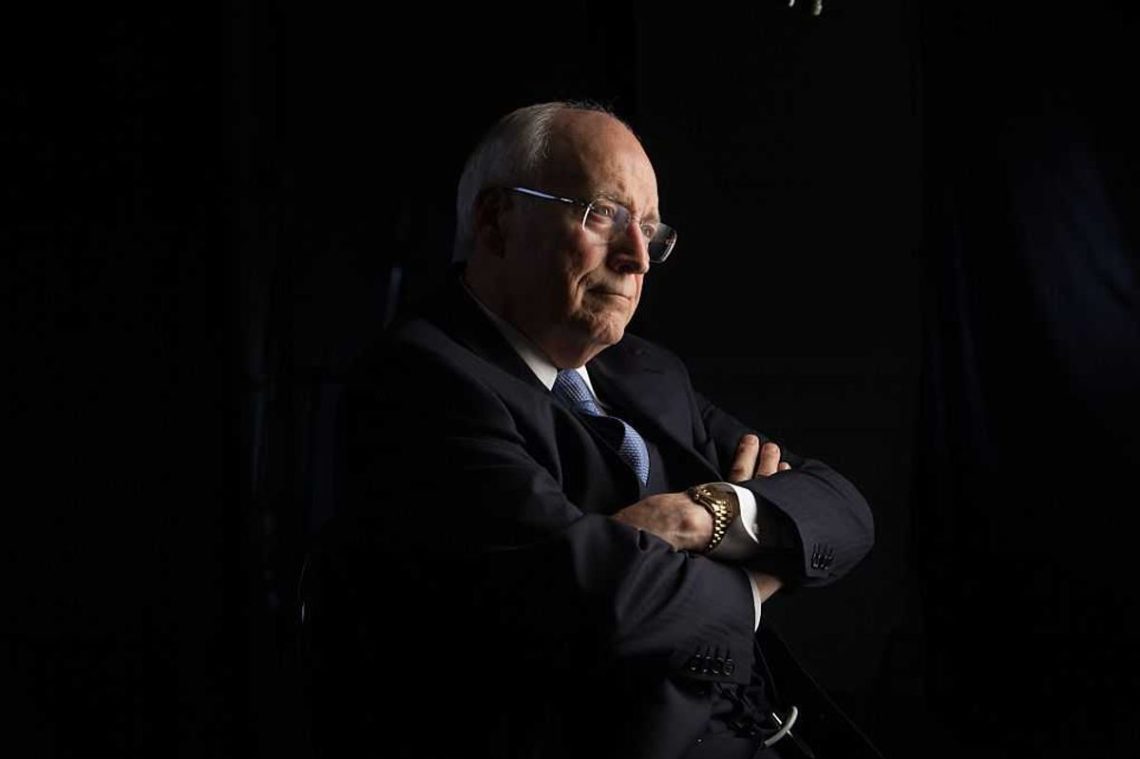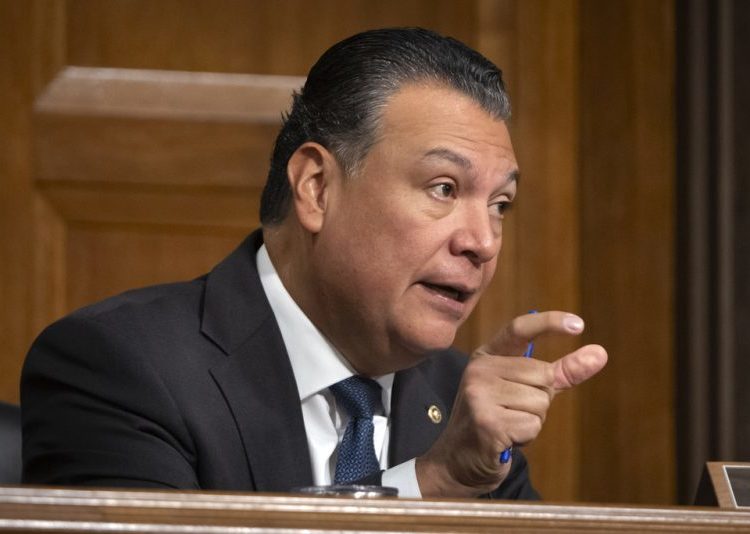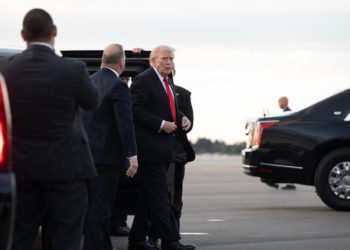The great British statesman Enoch Powell observed nearly 50 years ago: “All political lives, unless they are cut off in midstream at a happy juncture, end in failure, because that is the nature of politics and of human affairs.” Dick Cheney is no exception to Powell’s hard rule.
Our newspapers and publications in the coming days will be rife with surreal and false remembrances of the former vice president, who died Tuesday, age 84.
Surreal, because Democrats who spent a lifetime vilifying the man will laud him in death as a great statesman who opposed President Donald Trump and the populist right, while members of his own party will hold his legacy in significantly lower esteem.
Fake, because political commentators are incapable of remembering a time before Trump and can only “remember” the past by projecting their present emotions onto it.
When reviewing the former vice president’s complete antipathy for President Trump, it’s difficult to see it as having been anything but deeply personal.
Before many of my colleagues seem able to remember, Cheney was the consummate political badass, an archetype of ruthlessness, a meme before the meme wars. His economics and foreign policy deserve their exile from today’s Republican Party, but in his day, he bucked hard against the Republican urge to compromise with the rising American left and showed little sympathy for the wails of his opponents.
Cheney refused a role as polite, controlled opposition. He wielded political power without apology and helped rebuild the executive authority and culture Trump and the populists now wield to great effect. In a final irony, Cheney’s arrogance abroad — using military power to secure American energy interests and spread democracy — achieved neither. Instead, his failures cleared the way for the populist revolt that remade his party beyond recognition.
First, Dick Cheney the badass. He left Wyoming for Yale on a scholarship — and quickly flunked out. Undeterred, he returned — and flunked out again. Yale decided he wasn’t cut out to be a Yalie after all.
Despite his considerable intelligence, young Cheney headed back west, took a job as a power-company lineman, and began dating Lynne Ann Vincent, the woman who would become his wife of 61 years.
But his time back in Wyoming didn’t start off so well. Five days before the 2000 election, when news broke that George W. Bush had been arrested for drunk driving a quarter-century earlier, Cheney trumped his boss (for the first of many times), revealing he had two DUIs. It was Lynne, the more disciplined scholar, who convinced him to get his act together and go back to school.
“Lynne, after spending a semester in Europe, had graduated summa cum laude from Colorado College,” Cheney later wrote about those early days. “And I was sleeping off a hangover in the Rock Springs jail.”
After earning his degree, Cheney went to Washington, where his lifelong friend Donald Rumsfeld recruited him into Richard Nixon’s White House. When President Gerald Ford made Rumsfeld defense secretary, Cheney succeeded him as White House chief of staff.
After Ford’s defeat in 1976, Cheney ran for Congress. At 37, he suffered the first of five heart attacks while campaigning — but still won, beginning a five-term House career that ended when President George H.W. Bush named him secretary of defense. In this role, he successfully prosecuted the Gulf War.
After Bush’s loss to Bill Clinton in 1992, Cheney left public life, only returning after Bush’s son tapped him to find the best possible vice president for his ticket. In typical Cheney fashion, he found himself — and accepted the oft-derided job only if it came with a broad and influential portfolio of responsibilities.
Haunted by what he saw as the post-Watergate diminishment of the presidency, Cheney spent eight years under George W. Bush pushing for a more muscular executive branch. He championed an aggressive, sometimes vicious foreign policy, restrained the administration’s more liberal impulses, and redefined the modern presidency for a generation.
But the years in Washington didn’t tame the old Wyoming lineman’s temper. During a Senate-floor photo op in 2004, he told Sen. Patrick Leahy (D-Vt.) to “go f**k yourself.” Charles Krauthammer wrote one of the better columns on the incident, calling it one of the great political moments of the era. When the comedian Dennis Miller brought it up in 2010, Cheney grinned and called it “sort of the best thing I ever did.”
His scowling visage became a fixture in the deeply Democratic press of the 2000s. When C-SPAN caught him lurking in the bushes while Bush delivered a Rose Garden address, the images instantly went viral. Far from shrinking from his villainous reputation — he embraced the nickname “Darth Vader” — the vice president reveled in the left-wing media’s scorn.
One of his lasting frustrations was his boss’ refusal to pardon Scooter Libby — the longtime aide wrongly accused of leaking a CIA agent’s identity. Bush and Cheney’s relationship never recovered.
By all appearances, Cheney seemed the sort of man who might have welcomed Donald Trump’s rise. He came from a blue-collar state, and the administration that followed his had toyed with prosecuting him for war crimes. Barack Obama’s attorney general, Eric Holder, even flirted publicly with the idea. Trump, in contrast, pardoned Cheney’s friend Libby during his first term.
Yet Cheney chose a different course — one that would define, and in many ways tarnish, his legacy.
His hostility toward Trump wasn’t ideological; it was personal. Trump had done much that Cheney once claimed to value: building close ties with Israel’s hawkish leadership, confronting Iran, reasserting U.S. dominance in the Western Hemisphere, and strengthening NATO by forcing European allies to pay more for their own defense. Their disagreements on trade hardly explain Cheney’s claim that “in our nation’s 246-year history, there has never been an individual who is a greater threat to our republic” than Trump.
The truth is that beyond simply challenging the foreign-policy blob consensus, Trump was the first Republican candidate for president since Rep. Ron Paul (R-Texas) to explicitly attack the Bush administration’s record on 9/11, Iraq, and Afghanistan. As president, Trump completely disavowed the reckless and destructive decades of war in the Middle East and Central Asia.
When Liz Cheney (R-Wyo.) joined Democrats in their campaign to destroy Donald Trump after the events of Jan. 6, 2021, the Republican base mocked her and unceremoniously ejected her from power. She lost her leadership post, her primary, and the loyalty of the movement her father helped build. That humiliation cut deep. For a man as proud — and prideful — as Dick Cheney, the rejection did not sit well.
His bitterness during Trump’s first term hardened into something darker. Cheney lent credibility to the Russia hoax and, in one of his final political acts, endorsed Kamala Harris. It was a sad, almost tragic coda to a long and consequential career.
In the end, Cheney fulfilled Enoch Powell’s old truth about politics — one he would have recognized but never admitted. “All political lives, unless they are cut off in midstream at a happy juncture, end in failure.” Powell’s words have echoed through this story from the start, but they fit Cheney too perfectly to ignore.
He left politics the way he lived it: defiant, scowling, and unwilling to bend. The man who once told a U.S. senator to “go f**k yourself” had one final message for the movement he ultimately could not control. Rest in peace.
Sign up for Bedford’s newsletterSign up to get Blaze Media senior politics editor Christopher Bedford’s newsletter.
The post Like it or not, Dick Cheney paved the way for Donald Trump appeared first on TheBlaze.




